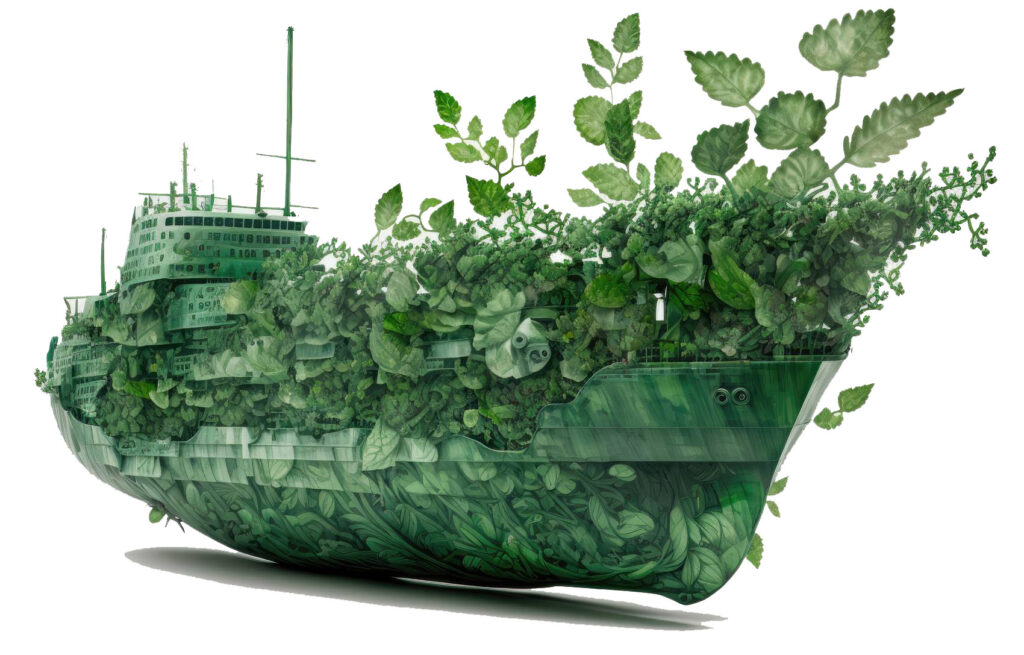
As Dutch Lloyd, we take our responsibility to minimise our environmental impact and to support environmental protection.
We as Dutch Lloyd, set several standards for our sustainability purposes:
- Support e-Certificates to preserve sources
- Invest in software to reach our business goals
- Building organic relation between ship technology and environment
- Pollution presentation based ship surveys
Dutch Lloyd understands the sustainability as “the needs of today’s generation are met without compromising the needs of future generations”. Nowadays, sustainability, environmental balance and economic growth together stand as a model that can provide effective use of natural resources and give importance to environmental quality as well as meeting the needs of today’s needs without putting the needs of future generations at risk.
Here are some key aspects to we explore further:
Environmental Impact Reduction: The maritime industry has historically been associated with environmental challenges, including emissions of greenhouse gases, oil spills, and the release of harmful pollutants into oceans. Sustainable practices in this industry involve reducing these negative impacts. This can be achieved through the use of cleaner fuels, energy-efficient technologies, and the implementation of stricter regulations.
Alternative Propulsion Technologies: To reduce emissions and dependence on fossil fuels, the maritime sector is exploring alternative propulsion technologies such as LNG (liquefied natural gas), hydrogen fuel cells, and battery-electric systems. These technologies have the potential to significantly reduce the industry’s carbon footprint.
Efficient Shipping Operations: Sustainable maritime practices also involve optimizing shipping routes and vessel designs to reduce fuel consumption and minimize emissions. This includes using advanced weather forecasting and data analytics to plan more fuel-efficient journeys.
Marine Conservation: The maritime industry plays a crucial role in the protection of marine ecosystems. Sustainable practices include avoiding sensitive areas, reducing underwater noise pollution, and taking steps to protect marine biodiversity.
International Regulations: The International Maritime Organization (IMO) sets global standards and regulations for the industry. Recent efforts by the IMO include the implementation of the International Maritime Solid Bulk Cargoes (IMSBC) Code and the International Maritime Organization’s strategy to reduce greenhouse gas emissions from ships.
Social Responsibility: Sustainability in the maritime industry also involves considerations of social responsibility, including the welfare of seafarers, labor conditions, and community engagement in port areas. Sustainable practices encompass fair labor practices, diversity and inclusion initiatives, and community development programs.
Circular Economy: The maritime sector is increasingly looking at ways to adopt a circular economy approach by reducing waste, reusing materials, and recycling where possible. Sustainable shipbuilding and maintenance practices are part of this effort.
Digitalization and Technology: The integration of digital technologies such as Internet of Things (IoT), blockchain, and data analytics can enhance sustainability efforts by optimizing supply chains, monitoring vessel performance, and improving safety.
Investment and Financing: Sustainability is also driving changes in the financial sector, with more emphasis on green financing, sustainable bonds, and investment in environmentally responsible projects within the maritime industry.
Sustainability is a constantly evolving field with changing rules. Sustainability in the maritime industry is not only a response to growing environmental concerns but also a strategic imperative for businesses looking to operate responsibly, comply with regulations, and meet the expectations of customers and stakeholders. As the industry continues to evolve, sustainability will remain at the forefront of its agenda.
Therefore, staying updated is the key! as we all require the latest information on the evolving regulations and developments in sustainability. Check out our LinkedIN page to stay tuned about our the latest updates on sustainable implimentations and evolving rules in maritime industry!
BLANK
